
Composer and alto saxophonist Steve Coleman in a superb modern jazz album, written by applying characteristics of human synovial joints to compositional process, and using "camouflage orchestration" to orchestrate players into the fore-, middle- and background.
Out of Stock
Quantity in Basket: None
Log In to use our Wish List
Shipping Weight: 3.00 units
Sample The Album:
Steve Coleman-alto saxophone
Jonathan Finlayson-trumpet
Maria Grand-tenor saxophone
Barry Crawford-flute
Rane Moore-clarinet
Jeff Missal-trumpet
David Nelson-trombone
Tim Albright-trombone
Kristin Lee-violin
Chris Otto-viola
Jay Campbell-cello
Greg Chudzik-contrabass
David Bryant-piano
Miles Okazaki-guitar
Anthony Tidd-bass
Alex Lipowski-percussion
Nei Sacramento-percussion
Mauricio Hererra-percussion
Ramon Garcia Perez-percussion
Jen Shyu-vocals
Marcus Gilmore-drums
Click an artist name above to see in-stock items for that artist.
UPC: 808713005721
Label: Pi Recordings
Catalog ID: PI 57
Squidco Product Code: 20399
Format: CD
Condition: New
Released: 2015
Country: USA
Packaging: Digipack - 3 panel
Recorded at Systems Two Recording Studios in Brooklyn New York on October 11th, 12th and 13th, 2014 by Joe Marciano and Max Ross.
"2014 was a remarkable year for alto saxophonist and composer Steve Coleman. Already acclaimed in jazz circles, he won wider recognition as the recipient of three prestigious awards: a MacArthur Fellowship, Guggenheim Fellowship and Doris Duke Performing Artist Award. This comes at a time when Coleman is at his creative peak, incorporating a lifetime of learning in African diasporic culture, ancient religions, metaphysics, Eastern philosophy and patterns found in nature into his musical methods. His influence among young artists, particularly in his approach to rhythm and his willingness to look beyond music for sources of inspiration, has never been stronger.
Synovial Joints represents the most ambitious project of Coleman's 30-year career as a bandleader. The work was composed for a group he calls the Council of Balance, a name he has used in the past for his large-scale projects, most significantly on his 1998 release Genesis & the Opening of the Way. The new recording features 21 musicians, including many who play in his working band Five Elements: Jonathan Finlayson (trumpet), Anthony Tidd (electric bass), Marcus Gilmore (drums), and Miles Okazaki (guitar). They are joined by other musicians who are also regularly in Coleman's nexus: Jen Shyu (vocals), David Bryant (piano), Tim Albright (trombone) and Maria Grand (tenor saxophone) who are further augmented by Latin percussionists and musicians from contemporary classical circles on strings, woodwinds, horns and percussion.
Coleman's main objective for Synovial Joints was to investigate two novel compositional ideas: exploring different connective principals to effect musical momentum and flow, and a concept he calls camouflage orchestration. In the first, he analyzed the movement of the various Synovial Joints of the human body, how they pivot, flex and bend, contract and relax and applied those features so that the music flows not just in a linear fashion, but with cyclical spin or rotation. In camouflage orchestration, which is inspired by the sounds that Coleman recorded in the Amazon rainforest, he pays particular attention to how instrument sounds can be distributed so that they are perceived to be in the foreground, middleground and background, much as the layered sounds reveal themselves in the rainforest.
Coleman has increasingly come to rely on spontaneous composition in the creation of his music: It usually starts with him quieting his mind, approaching a near-trance state. He then improvises either on the saxophone and/or singing as he simultaneously beats out rhythms while sensing different memories, moods and images: shapes, appearances, energies, vibrations, movements, etc. The results are recorded and transcribed, and additional layers often also spontaneously composed are added and then orchestrated. The result is a music that he believes comes from a subconscious, less intentional, and perhaps, more sincere place.
The New York Times recently named Coleman one of the most influential figures in the last half-century of improvised music and, in awarding him the so-called Genius Grant, the MacArthur Foundation called him Influential well beyond the scope of saxophone performance and composition, Coleman is redefining the vocabulary and vernaculars of contemporary music. Always looking forward, Synovial Joints is further evidence that Coleman remains at the vanguard of expanding the possibilities for musical expression."-Pi Recordings
Artist Biographies
• Show Bio for Steve Coleman "Steve began playing music just days before his 14th birthday as a freshman at South Shore High School on the south side of Chicago. His first instrument was violin but later that year he switched to the alto saxophone. For three years Steve studied the basics of music and saxophone technique, then he decided that he wanted to learn how to improvise. Looking for the best improvising musicians to listen to is what brought Steve to the music of Charlie Parker, although it helped that his father listened to Parker all the time. After spending two years at Illinois Wesleyan University Steve transferred to Roosevelt University (Chicago Music College) in downtown Chicago in order to concentrate on Chicago's musical nightlife. Specifically Coleman had been introduced to the improvisations of Chicago premier saxophonists Von Freeman, Bunky Green, Gido Sinclair, Sonny Greer and others and he wanted to hang out and learn from these veterans. By the time he left Chicago in May 1978, he was holding down a decent gig leading a band at the New Apartment Lounge, writing music, playing Parker classics, and getting increasingly dissatisfied with what he felt was a creative dead end in the Chicago scene. After hearing groups from New York led by masters like Max Roach, Art Blakey, Woody Shaw, The Thad Jones-Mel Lewis Orchestra, Sonny Rollins, etc. come through Chicago with bands that featured great players with advanced musical conceptions, Steve knew where he wanted to go next. He felt he needed to be around this kind of atmosphere in order to grow musically. Hitchhiking to New York and staying at a YMCA in Manhattan for a few months, he scuffled until he picked up a gig with the Thad Jones-Mel Lewis Big Band, which led to stints with the Sam Rivers Big Band, Cecil Taylor's Big Band and others. Soon he began cutting records as a sideman with those leaders as well as pivotal figures like David Murray, Doug Hammond, Dave Holland, Mike Brecker and Abbey Lincoln. However it was really the influence of Von Freeman and Bunky Green in Chicago, Thad Jones, Sam Rivers, Doug Hammond in New York and listening to recordings of past improvising masters and music from West Africa that got Coleman turned around musically. . The most important influences on his music during this time were listening to tenor saxophonist Von Freeman (who primarily influenced Coleman as an improviser), saxophonist Sam Rivers (who influenced Steve compositionally) and drummer/composer Doug Hammond (who was especially important in Steve's conceptual thinking). Even playing with these masters only went part of the way toward paying the rent, and so for the next four years Coleman spent a good deal of time playing in New York City's streets for small amounts of money with a street band that he put together with trumpeter Graham Haynes, the group that would evolve into the ensemble Steve Coleman and Five Elements. It is this group that would serve as the flagship ensemble for most of Steve's activities. Within a short time the group began finding a niche in tiny, out-of-the-way clubs in Harlem and Brooklyn where they continued to hone their developing concept of improvisation within nested looping structures. These were ideas based on how to create music from one's experiences, which became the foundation which Coleman and friends call the M-Base concept. However, unlike what most critics wrote this concept was philosophical, Coleman did not call the music itself M-Base. After reaching an agreement with the West German JMT label in 1985, Steve and his colleagues got their chance to document their emergent ideas on three early Coleman-led recordings like Motherland Pulse, On The Edge Of Tomorrow, and World Expansion. The late 1980s found Coleman working to codify his early ideas using the group Steve Coleman and Five Elements and working with a collective of musicians called the M-Base Collective. As his ideas grew Steve also learned to incorporate various forms of research to expand his awareness, these techniques included learning to program computers to be used as tools to further develop his conception. He developed computer software that he referred to as The Improviser, which was able to spontaneously develop improvisations, harmonic structures and drum rhythms using artificial intelligence based on certain musical theories that Steve had developed over the years. It was also during this time that Coleman came into contact with the study of the philosophy of ancient cultures. This began in the late 1970s with his listening to music from West Africa and studying about he African Diaspora, but in the 1980s Steve began to study and read about the ideas behind the music. He began to see that there was a sensibility that connected what he was interested in today with the ancient cultures of the past. All of these ideas are documented on his recordings in the form of a sonic symbolic language. These emerging concepts were documented on Steve's subsequent albums Sine Die (recorded 1987-88 on the Pangaea Label), Rhythm People (1990), Black Science (1990), Drop Kick (1992), The Tao of Mad Phat (1993), and the first album of the entire M-Base Collective called Anatomy of a Groove (1991-1992); all except Sine Die on BMG Records. These recordings were the beginning of what Steve considers to be the transition to his mature period (1987-1990). However, not being satisfied with reading and listening to recordings, Coleman embarked on the first of many research trips, first going to Ghana in December 1993 to January 1994 to study the relationship of language to music. One of the places that he traveled to was a small village called Yendi to check out the Dagbon people who have a tradition of speaking through their music using a drum language that still survives today. Steve had certain ideas about the role of music and the transmission of information in ancient times and he wanted to verify his speculations. This trip had a profound effect on Coleman's music and philosophy. Upon returning to the United States Steve recorded Def Trance Beat and A Tale of 3 Cities on BMG Records, however the impact of the ideas that he was introduced to in Ghana would not be fully expressed in his work until late in 1994 after meeting the Kemetic (i.e. related to ancient Egypt) philosopher Thomas Goodwin, whose influence on Steve's work was profound and far reaching. In June 1994 Steve formed the group Renegade Way, at that time consisting of Steve Coleman and Greg Osby on alto saxophones, Joe Lovano and Craig Handy on tenor saxophones, Kenny Davis on bass and Yoron Israel on drums. This group also did its first tour of Europe in late august 1995 (with Bunky Green on alto taking Greg's place and Ralph Peterson on drums instead of Yoron). A later version of this group consisted of Steve Coleman and Greg Osby on alto saxophones, Gary Thomas and Ravi Coltrane on tenor saxophones, Anthony Tidd on Bass and Sean Rickman on drums, however this group has never recorded a commercially released CD. Representing both a summation of the previous period and the beginning of another phase is the three CD box set entitled Steve Coleman's Music - Live at the Hot Brass released by BMG France. Each CD in the box set was recorded live in March 1995 in Paris and features one of Coleman's groups, Curves of Life by Steve Coleman and Five Elements, The Way of the Cipher by Steve Coleman and Metrics and Myths, Modes and Means by Steve Coleman and The Mystic Rhythm Society. This last CD was directly influenced by the trip to Ghana, which together with philosophical studies with Thomas Goodwin, occupied Steve's investigations for the remainder of the 1990s. Together with an experimental ensemble put together called Steve Coleman and The Secret Doctrine, that brought the total number of group projects that Steve was involved in to five. The year 1995 was an important year for Steve. He began by organizing a trip that would make a profound impact on his music. While pursuing his philosophical studies and learning more about the transmission of these ideas through music, Steve began to plan to investigate an idea that he had been thinking about for at least 7 years. In an effort to follow the development of certain philosophical and spiritual ideas obtained by studying ancient cultures (primarily ancient Egypt) and following up on the 1993-94 research trip to Ghana, Africa, Steve wanted to meet and collaborate in a creative way with musicians who were involved in certain ancient philosophical/musical traditions which come out of West Africa. One of his main interests was the Yoruba tradition (predominantly out of western Nigeria), which is one of the Ancient African Religions underlying Santeria (Cuba and Puerto Rico), Candomblé (Bahia, Brazil) and Vodun (Haiti). Steve decided to go to these places and investigate the method by which the ideas of these traditions were transmitted through music. First stop, Cuba! In Cuba Steve found that the situation was more complex than he had imagined for the people had preserved more than one African culture and these were mixed together under the general title of Santeria. There are the Abakua societies (Ngbe), the various Arara cults (Dahomey), the Congo traditions such as nganga, mayombe and palo monte as well as the Yoruba traditions. But he did find one group called AfroCuba de Matanzas who specialized in preserving all of the above traditions as well as various styles of Rumba. It was to the town of Matanzas that Steve headed in January of 1996 in order to study the music and also contact AfroCuba de Matanzas and arrange a meeting with the leader of this group, Francisco Zamora Chirino (otherwise known as Minini). Minini was also excited about the project and so it was arranged that the collaboration would take place in February during the time of the Havana Jazz Festival in order to give the expanded group a chance to perform before the Cuban public. In February of 1996 Steve rented a large house in Havana and along with a group of 10 musicians and dancers, a three-person film crew and the group AfroCuba de Matanzas (who had been bused in from Matanzas) the collaboration was started. For 12 days the two groups hung out together, worked, practiced and conceptualized in order to realize their goal. After their performance at the Havana Jazz Festival the musicians went into a Egrem Studios in Havana and recorded the collaboration. The results of this effort are preserved on a recording made for the BMG France recording company called The Sign and The Seal by Steve Coleman and The Mystic Rhythm Society in collaboration with AfroCuba de Matanzas. Although this project went well, Coleman viewed the results as he did every other project he has been involved in, as a step along a certain path. It did demonstrate another step in the evolution of his music, but it is being on the path that is important to Steve. It also shows that there is a more obvious connection than is generally thought between the creative music of today and the dynamic musical traditions of African peoples living in various parts of the earth. The combined group of Steve Coleman and The Mystic Rhythm Society in collaboration with AfroCuba de Matanzas did a major tour of Europe in June-July of 1997. This year also saw Steve form a large group (big band) called Steve Coleman and The Council of Balance. This group recorded a CD called Genesis which was released as part of the two CD set released by BMG France called Genesis and The Opening of The Way (the second CD in the set featuring Steve Coleman and Five Elements). 1997-1999 saw a continuation of the projects involving cultural exchange with musicians around the world. Partially funded by a grant from Arts International (1997), Steve took a group of musicians from America and Cuba to Senegal to collaborate and participate in musical and cultural exchanges with the musicians of the local Senegalese group Sing Sing Rhythm. Using his own funds he also led his group Five Elements to the south of India in January-February of 1998 to participate in a cultural exchange with different musicians in the Carnatic music tradition. Steve and his group also gave workshops in the Brahavadhi Center headed by the renowned musicologist Dr. K. Subramanian. What Steve learned on the trip to India (along with a research trip to Egypt the preceding month) helped to substantiate the knowledge of the ancient systems that Steve had been studying. These trips were helpful in supplying the additional information necessary for Steve to continue his studies, which he hopes to express through his own music. Two of Steve's Five Elements recordings released by BMG France, The Sonic Language of Myth (1999) and The Ascension to Light (2000) are a direct result of these studies. This work came to the attention of IRCAM (the world renown computer-music research center in Paris France) leading to Coleman receiving a major commission from IRCAM to further develop his ideas, in the form of interactive computer software, at the IRCAM facilities in Paris with the aid of programmers Sukandar Kartadinata, Takahiko Suzuki, Gilbert Nouno and IRCAM technology. A premier concert in June 1999 featuring Steve Coleman and Five Elements interacting with what Steve calls his Rameses 2000 computer software program was the public result of this commission. In 2000-2001 Steve withdrew from performing/recording and began study sabbatical. During this time he traveled extensively to India, Indonesia, Cuba and Brazil and continued much of his research as a music professor at the University of California at Berkeley and at CNMAT (the Center for New Music and Technology). He also overhauled his business organization and signed with another record company from France called Label Bleu. After returning to the world of performing Coleman recorded a live double-CD set called Resistance Is Futile (2001) on Label Bleu records. In 2002 Steve Coleman and Five Elements recorded a CD that is available free of charge on Steve's website (www.m-base.com) called Alternate Dimension Series I. Also recorded in this year is the On The Rising Of The 64 Paths on Label Bleu records. Lucidarium was recorded in 2003 (also on Label Bleu records). For this CD Steve and his group explore the dimensions of an alternate tonal and rhythmic system, continuing the spirit of research and experimentation that marks all of his projects. Weaving Symbolics, recorded in 2005, similarly explores the world of form. Much of the important segments of this activity from January 1996 on have been preserved in the form of a documentary film shot by Eve-Marie Breglia based on Steve's music and the theme of cultural transference tentatively entitled Elements on One scheduled for release in 2004-05. 2006-2007 saw a flurry of activity, with Steve releasing his first solo saxophone recording called Invisible Paths (on the Tzadik label). Also recorded during this time were Harvesting Semblances and Affinities and The Mancy of Sound, but these recordings were not released until 2010 and 2011 respectively, after Steve had made a distribution deal with Pi Recordings. All three of these recordings are connected conceptually in that they deal with both an expanded tonal and orchestration conception. This also coincided with Steve's 2006 meeting with the great Danish composer Per Nørgård, who has had some influence on Steve's orchestration concepts. In 2012 Steve altered his approach to being creating completely spontaneous compositions, and later orchestrating them. Functional Arrhythmias was the first recording to use this approach, which involved spontaneously composing in a near-trance state. This was also first recording to be based on the cyclical movements within the human body, a idea that was influenced by Steve's meeting and conversations with percussionist, polymath and modern shaman Milford Graves in 2011. While on a study sabbatical in 2013, Steve received a vision in a half-waking state, and began work on a 2-year project that culminated in the 2014 large ensemble recording entitled Synovial Joints (released April 28 2015). This was a continuation of the spontaneous composition approach, but further developed with much more orchestration of musical colors involved. A further development of this approach resulted in the 2017 recording Morphogenesis, by Steve's latest ensemble; Steve Coleman's Natal Eclipse. Scheduled for a release in the near future is an upcoming recording of Steve Coleman and Five Elements, recorded live at the Village Vanguard in May of 2017. Steve does not think of these concepts, groups, projects and recordings as separate events, but as one connected learning experience. Since 1994 Steve has done a series of performance and educational residencies around the United States and in many other countries (Cuba, India, Ivory Coast, Senegal, Brazil, France) through his non-profit, M-Base Concepts, Inc. This non-profit also has a an online music community website; m-base.net, which promotes educational activities through various multimedia formats and interactive media events." ^ Hide Bio for Steve Coleman • Show Bio for Jonathan Finlayson "Jonathan Finlayson has been recognized by the New York Times as "...an incisive and often surprising trumpeter," who is "...fascinated with composition." Born in 1982 in Berkeley, CA, Finlayson began playing the trumpet at the age of ten in the Oakland public school system. He came under the tutelage of Bay Area legend Robert Porter, a veteran trumpeter from the bebop era who took Finlayson under his wing; he was often seen accompanying Porter on his gigs about town and sitting in on the popular Sunday nights jam session at the Bird Cage. He subsequently attended the New School for Jazz and Contemporary Music where he studied with Eddie Henderson, Jimmy Owens and Cecil Bridgewater. Finlayson is a disciple of the saxophonist/composer/conceptualist Steve Coleman, having joined his band Five Elements in 2000 at the age of 18. He is widely admired for his ability to tackle cutting-edge musical concepts with aplomb. Finlayson has performed and recorded in groups led by Steve Lehman, Mary Halvorson, Craig Taborn, Henry Threadgill and played alongside notables such as Von Freeman, Jason Moran, Dafnis Prieto and Vijay Iyer." ^ Hide Bio for Jonathan Finlayson • Show Bio for Rane Moore "Clarinetist Rane Moore is well-regarded for her thoughtful, provocative interpretations of standard and cutting-edge contemporary repertoire. Fiercely devoted to the new music communities of the East Coast and beyond, Moore is a founding member of the New York based Talea Ensemble which regularly gives premieres of new works at major venues and festivals around the world. Ms. Moore has recently joined the award winning wind quintet, The City of Tomorrow, and is also a member of Boston's Callithumpian Consort and Sound Icon. Recent projects with legendary saxophonist Steve Coleman have yielded recordings and performances at The Village Vanguard, Newport Jazz Festival, Saalfelden Jazz Festival, and Jazz à la Villette in Paris. Moore is also a regularly invited collaborator with the International Contemporary Ensemble (ICE), Bang on a Can All-Stars, New York New Music Ensemble, Boston Musica Viva, Emmanuel Music, A Far Cry, Boston Modern Orchestra Project , Boston Landmarks Orchestra, Boston Ballet Orchestra and is the principal clarinetist for the Boston Philharmonic. Ms. Moore's latest festival and series performances include high profile events at the Tanglewood Music Festival, Lincoln Center Festival, Wien Modern, Warsaw in Autumn, ECLAT in Stuttgart, Darmstadt International Music Festival, Monday Evening Concerts in Los Angeles, Ojai Music Festival, Cervantino Festival in Mexico, Time of Music in Finland, Bludenzer Tage Zeitgemäßer Musik, Transit Festival in Belgium, Time Spans in Colorado and New York, Contempuls 5 in Prauge, Sacrum Profanum in Krakow, June in Buffalo, as well as local and emerging series such as Monadnock Music, Rockport Music, Kingston Chamber Music Festival, Town Hall Concerts in Seattle, and Trinity Wall Street in New York. In addition to her very active performing schedule, Ms. Moore is on the faculty of the Summer Institute for Contemporary Performance Practice at New England Conservatory and has served in the ensemble-in-residence and guest teacher for advanced students in composition and clarinet at many universities and conservatories around the world. Ms. Moore is the co-artistic director of Winsor Music, a much beloved chamber music series and musical outreach organization in the Boston area. Ms. Moore has recordings on over a dozen labels including Tzadik, Pi, Wergo, and ECM records. Critics have praised her "enthralling," "tour-de-force," and "phenomenal" performances." ^ Hide Bio for Rane Moore • Show Bio for Kristin Lee "A recipient of the 2015 Avery Fisher Career Grant, as well as a top prizewinner of the 2012 Walter W. Naumburg Competition and the Astral Artists' 2010 National Auditions, Kristin Lee is a violinist of remarkable versatility and impeccable technique who enjoys a vibrant career as a soloist, recitalist, chamber musician, and educator. "Her technique is flawless, and she has a sense of melodic shaping that reflects an artistic maturity," writes the St. Louis Post-Dispatch, and The Strad reports, "She seems entirely comfortable with stylistic diversity, which is one criterion that separates the run-of-the-mill instrumentalists from true artists." Kristin Lee has appeared as soloist with leading orchestras including The Philadelphia Orchestra, St. Louis Symphony, New Jersey Symphony, Rochester Philharmonic, New Mexico Symphony, West Virginia Symphony, the Ural Philharmonic of Russia, the Korean Broadcasting Symphony, the Milwaukee Symphony, the Guiyang Symphony Orchestra of China, the St. Paul Chamber Orchestra, and many others. She has performed on the world's finest concert stages, including Carnegie Hall, Avery Fisher Hall, the Kennedy Center, Philadelphia's Kimmel Center, the Metropolitan Museum of Art, Steinway Hall's Salon de Virtuosi, the Louvre Museum in Paris, Washington, D.C.'s Phillips Collection, and Korea's Kumho Art Gallery. She has been featured on the Ravinia Festival's Rising Stars Series and has toured throughout northern Italy. She has curated programs that premiered at Philadelphia's World Cafe Live and New York's (le) Poisson Rouge in which she commissioned five new works for the violin and various instruments. Lee has given recitals in New York's Merkin Concert Hall and Florida's Kravis Center, and presented concerts around the United States with the Chamber Music Society of Lincoln Center. Her recent engagements include debuts with the Tacoma Symphony, Hong Kong Philharmonic, Nordic Chamber Orchestra of Sweden, a return performance with the Orquesta Sinfonica Nacional of Dominican Republic, and concerts around the United States with the Chamber Music Society of Lincoln Center. Highlights of her 2017-18 season include the Moab Music Festival, Utsey Chamber Music Series, Philadelphia Chamber Music Society, and the Highlands Chapel Series. Lee will also continue to perform and tour with the Chamber Music Society of Lincoln Center. An accomplished chamber musician, Lee is a member of the Chamber Music Society of Lincoln Center following her completion of a three-year residency as a CMS Two artist. She has appeared the Ravinia Festival, Music@Menlo, La Jolla Festival, Medellín Festicámara of Colombia, the El Sistema Chamber Music festival of Venezuela, the Sarasota Music Festival, Festspiele Mecklenburg-Vorpommern of Germany, the Hong Kong Chamber Music Festival and the Bridgehampton Chamber Music Festival, among many others. Lee is a principal artist with Camerata Pacifica, sitting as The Bernard Gondos Chair. She is also the concertmaster of the groundbreaking Metropolis Ensemble, with whom she premiered Vivian Fung's Violin Concerto, written for her, which appears on Fung's CD Dreamscapes, released on Naxos. Fung's Violin Concerto won the 2013 Juno Award. She is also a member of Steve Coleman's Natal Eclipse, a new hybrid chamber-jazz ensemble that explores the very foundations of group improvisation and spontaneous composition. Lee's performances have been broadcast on PBS's "Live from Lincoln Center," the Kennedy Center Honors, WFMT Chicago's "Rising Stars" series, and on WQXR in New York. She also appeared on Perlman in Shanghai, a nationally broadcast PBS documentary that chronicled a historic cross-cultural exchange between the Perlman Music Program and Shanghai Conservatory. Lee's many honors include awards from the 2015 Trondheim Chamber Music Competition, 2011 Trio di Trieste Premio International Competition, the SYLFF Fellowship, Dorothy DeLay Scholarship, the Aspen Music Festival's Violin Competition, the New Jersey Young Artists' Competition, and the Salon de Virtuosi Scholarship Foundation. She is also the unprecedented First Prize winner of three concerto competitions at The Juilliard School - in the Pre-College Division in 1997 and 1999, and in the College Division in 2007. Lee is the co-founder and artistic director of Emerald City Music, a chamber music series that aims to present authentically unique concert experiences and bridge the divide between the highest caliber classical music and the many diverse communities that reside in the Puget Sound region of Washington State. The inaugural 2016-17 season presented fourteen performances, twenty-five outreach events, and over forty-five lauded musicians visiting Seattle and Olympia from twelve global cities. The 2017-18 season features the world premiere of 2014 Pulitzer Prize-winner John Luther Adams' ...there is no one, not even the wind, co-commissioned by Emerald City Music and five other national arts organizations. Born in Seoul, Korea, Lee began studying the violin at the age of five, and within one year won First Prize at the prestigious Korea Times Violin Competition. In 1995, she moved to the United States and continued her musical studies under Sonja Foster. Two years later, she became a student of Catherine Cho and Dorothy DeLay in The Juilliard School's Pre-College Division. In January 2000, she was chosen to study with Itzhak Perlman after he heard her perform Mendelssohn's Violin Concerto with Juilliard's Pre-College Symphony Orchestra. Lee holds a Master's degree from The Juilliard School, where she studied with Itzhak Perlman and Donald Weilerstein, and served as an assistant teacher for Perlman's studio as a Starling Fellow. She is a member of the faculty of the Aaron Copland School of Music at Queens College and has served on the faculties of the LG Chamber Music School in Seoul, Korea, El Sistema's chamber music festival in Caracas, Venezuela, and the Music@Menlo Chamber Music Festival." ^ Hide Bio for Kristin Lee • Show Bio for Chris Otto "Christopher Otto studied composition at the Eastman School of Music with Martin Bresnick, David Liptak, and Robert Morris. As a violinist, Christopher has premiered many compositions and worked with such composers as Harrison Birtwistle, Pierre Boulez, Helmut Lachenmann, and Steve Reich. Christopher has participated as composer and performer in such contemporary music festivals as the Lucerne Festival Academy, Internationale Musikinstitut Darmstadt, Karlheinz Stockhausen Courses, Institute and Festival for Contemporary Performance at the Mannes College of Music, June in Buffalo, and Festival Internacional de Msica Contempornea de Michoacn." ^ Hide Bio for Chris Otto • Show Bio for Jay Campbell "Cellist Jay Campbell has been recognized around the world for approaching both old and new works with equally probing curiosity and emotional commitment. His performances have been described as "brilliant and insatiably inquisitive", "electrifying", and "prodigious" by the New York Times, and "gentle, poignant, and deeply moving" by the Washington Post. A recipient of the prestigious Avery Fisher Career Grant, Jay performed with the New York Philharmonic in 2013 and was a curator for the New York Philharmonic's 2016 Biennale. He has soloed in major venues around the globe including Carnegie Hall's Stern Auditorium, Avery Fisher Hall, and Lucerne's KKL and performed recitals in Carnegie's Weill Hall, the Kennedy, Mondavi, and Krannert centers. Dedicated to introducing audiences to the music of our time, Jay has worked closely with some of the most creative minds of the 20th/21st centuries including Pierre Boulez, Elliott Carter, Matthias Pintscher, Kaija Saariaho, and countless others from his own generation. His close association with John Zorn has resulted in over a dozen works written for him including The Aristos, a Pulitzer Prize runner up resulting in the release of Hen to Pan (Tzadik), listed in the New York Times Best Recordings of 2015. Forthcoming discs in '16/17 include George Perle's cello concerto with the Seattle Symphony and Ludovic Morlot, a disc of Beethoven, Debussy, Stravinsky and Pintscher (Victor Elmaleh Collection), and a disc of works commissioned for Jay by David Fulmer (Tzadik). Also beginning in 2017, Jay will be the cellist of a new piano trio with violinist Stefan Jackiw and pianist Conrad Tao. He has been a guest at the Marlboro, Chamber Music Northwest, Moab, HeidelbergerFruhling, DITTO, and Lincoln Center festivals." ^ Hide Bio for Jay Campbell • Show Bio for Greg Chudzik "Greg Chudzik is an active performer across numerous genres on the double bass and electric bass. Currently, he can be seen performing regularly with several new music groups, including Signal Ensemble, Wet Ink Ensemble, and Talea Ensemble. Greg is also a member of several bands, including Empyrean Atlas, Bing and Ruth, and The Briars of North America. He has worked with numerous influential figures in contemporary music, including Steve Coleman, Steve Reich, Pierre Boulez, George Benjamin, Helmut Lachenmann, Charles Wuorinen, Alex Mincek and Tristan Perich. Last January, Greg completed a tour opening for Jeff Mangum, formerly of Neutral Milk Hotel. Greg's recording credits include playing on the Grammy-nominated "Barcelonaza" by Jorge Leiderman, "Synovial Joints" by Steve Coleman on Pi Recordings, "Tomorrow Was the Golden Age" by Bing and Ruth on RVNG records, the album "Americans" by Scott Johnson (Tzadik records), multiple recordings with Signal Ensemble on New Amsterdam and Mode Records, the album "Grown Unknown" by Lia Ices (Secretly Canadian records), the album "Inner Circle" by Empyrean Atlas, and the album "High Violet" by The National on 4AD records. Greg's new album "Solo Works, Vol. 1" features original pieces of music written for bass guitar and electronics, and will be released this July on Panoramic Records." ^ Hide Bio for Greg Chudzik • Show Bio for David Bryant "Pianist/Composer/Multi-Instrumentalist David Bryant is a world-class artist. Few musicians today match the versatility, originality, and sensitivity that he brings to the music. He combines an extensive knowledge of the jazz tradition and other diverse musical idioms, as well an individualistic approach and sound; it is no surprise that he is quickly rising to the top of the international jazz scene. David Bryant was born 1983 in Brooklyn, NY. As a member of a family that encouraged a strong musical upbringing, David started playing piano at age 4. By age 8, he was already competing and ranking in some of the New York area's most prestigious youth classical piano competitions, such as BACA and the Queens College Festival of Music Competition. Four years later, David also began playing cello and trumpet, performing with youth symphonies and chamber programs on all three instruments. As a result of his dedication, he was accepted to New York's prestigious LaGuardia High School of Music and Arts. It was here that David became interested in jazz. While at LaGuardia, David quickly became an integral part of the Senior Jazz Band and combos as well as the All-City Jazz Band. He won the "Outstanding Soloist" award at Lincoln Center's Essentially Ellington competition, as well as being invited to participate in the Monterey Jazz Festival and the North Sea Jazz Festival. His senior year he was selected to the Grammy Foundation's All-American Jazz Combo. In 2001, he received a scholarship to study at the New England Conservatory. He made the most of this opportunity quickly becoming a rising star in Boston's jazz scene. As well as joining the Boston Jazz Reparatory Orchestra (BJRO), he performed weekly at Wally's Jazz Café and Jordan Hall while also performing at Ryles and the Regatta Bar. In 2005 he graduated with a degree in Jazz Performance and a distinction in music. David currently resides in Manhattan. He is currently a regular member of the Steve Davis Quintet, Myron Walden/Darren Barrett Quintet, Jen Shyu's Jade Tongue and James "Jabbo" Ware's Orchestra. He has also played with the likes of Ravi Coltrane, Roy Haynes, Dave Holland, Jimmy Heath, Steve Coleman, Kenny Wheeler, Wynton Marsalis, Eddie Henderson, Bob Brookmeyer, George Garzone, Eric McPherson, Abraham Burton, and many others in the New York and international jazz scene. He has performed and can be seen in clubs such as Birdland, the Iridium, the Jazz Standard, the Jazz Gallery, Carnegie Hall, Alice Tully Hall, the 55 Bar, Barbes, the Knitting Factory, Zebulon, the Jazz Bakery, and the Cotton Club in Tokyo. He has currently recorded projects with Steve Davis, Myron Walden, and Abraham Burton as well as recording and performing with various projects of his own." ^ Hide Bio for David Bryant • Show Bio for Miles Okazaki "Miles Okazaki is an American musician based in New York City. He is known for his technical command of the guitar, his rhythmic approach to improvisation and composition, and his work in contemporary music theory. Okazaki grew up in Port Townsend, Washington, a small town near the Olympic Mountains in the Pacific Northwest. He got his first classical guitar at age 6, and began playing regular gigs on electric guitar by age 14, after studying for several years at the Centrum Jazz Workshop. He received many awards as a guitarist throughout his early years, and eventually placed 2nd in the Thelonious Monk International Guitar Competition. Okazaki moved to New York City in 1997 to pursue a career in music and begin writing his own material. His teacher on guitar at this time was Rodney Jones, who recommended him for his first gig, with Stanley Turrentine. Okazaki spent four years on the road with vocalist Jane Monheit, while also writing and rehearsing the music for his first album, Mirror, which was released independently. The album received a "Critics Pick" in the New York Times, calling it "a work of sustained collectivity as well as deep intricacy." He expanded to a septet for his second album, Generations, described by pianist Vijay Iyer "the sonic equivalent of Escher or Borges, but with real emotional heft,". His third album, Figurations, was recorded live with a quartet, and was selected as one of the New York Times top ten albums of 2012, described by Ben Ratliff as "slowly evolving puzzles of brilliant jazz logic." In January of 2016 Okazaki recorded a new album, Trickster, that will be released later this year. Okazaki wrote, produced, and illustrated these albums. As a sideman, Okazaki works in many areas, ranging from Standard repertoire to experimental music. Recently he has been seen most frequently as the guitarist for Steve Coleman and Five Elements. In the last few years, he has worked with a wide variety of artists including Kenny Barron, Jonathan Finlayson, Amir El Saffar, Adam Rudolph, Dan Weiss, Linda Oh, Darcy James Argue, Jane Monheit, Vijay Iyer, Francois Moutin, Doug Hammond, Carl Allen, Ohad Talmor, Mary Halvorson, John Zorn, Jen Shyu, Mark Giuliana, Patrick Cornelius, Rajna Swaminatham, Matt Mitchell, Craig Taborn, Tony Moreno, Ben Wendel, Donny McCaslin, and many others. Okazaki currently teaches guitar at the University of Michigan. His first book, Fundamentals of Guitar, was released in 2015. He has also taught at the Banff Institute, The New School, Queens College, The Juilliard School, Amsterdam Conservatory, and many other institutions. Outside of guitar, his past teachers include Anthony Davis (composition), Ganesh Kumar (Carnatic percussion), and Kendall Briggs (counterpoint). His awards and grants include Chamber Music America's "New Works" (2007), Chamber Music America's "French-American Jazz Exchange" (2009), the Jazz Gallery and Jerome Foundations Residency Commission (2010), the American Music Center's Composer Assistance Program (2011), the Mid-Atlantic Arts Foundation's US Artists International grant (2012), the Rockefeller Brother's Fund Artist Residency (2012), and the Jazz Gallery Mentorship program (2015). He holds degrees from Harvard University, Manhattan School of Music, and The Juilliard School, and lives in Brooklyn, NY." ^ Hide Bio for Miles Okazaki • Show Bio for Anthony Tidd "Anthony Tidd is a composer, producer, audio engineer, educator and musician. He plays bass, guitar and piano/keyboards. Tidd's musical palette as a composer and performer is diverse. He holds a deep knowledge of jazz, R&B, Hip-hop, classical, and new music, as well as a particular affinity for creative improvisation. Born and raised in the United Kingdom, he has been living and working in the United States since 1997. He has performed and toured all over the globe with artists such as Steve Coleman, The Roots, MeShell Ndegeocello, +Gang Starr, Geopelle, Common, Greg Osby, Marsha Ambrosius, Bhekki Mseleku, Wayne Krantz, Rudresh Mahanthappa, Steve Williamson, Ari Hoenig, Ursula Rucker and Dap Theory. Tidd has produced recordings for Jill Scott, Macy Gray, Zap Mama, Lady Gaga, Pink, The Jazzyfatnastees, Ursula Rucker, The Black Eyed Peas, Joy Denalane, and the Grammy Award-winning hip-hop collective The Roots, among others. He has worked with such other artists as Bilal, Soul Asylum, and Erykah Badu. He has composed music for the United Nations, the BBC, American Airlines, the London Philharmonic Orchestra, as well as film & television. Tidd attended the Newhan Academy of Music in London, Thurrock College of Music, as well as Goldsmiths University of London, where he received a B.A. in Composition & Music technology. As a student, he studied composition, upright and electric bass, piano, music technology, and film scoring. Tidd has taught music and music technology at the Oval House Theatre (London), St. Paul's Way School (London) and has held master classes and collaborated with the London Symphonietta, NYU, U.C Berkley, The Berlin Philharmoniker, The Pavorotti Center (Mostar), Durban University (South Africa), and various others. His own musical project, Quite Sane's last release, entitled "The Child of Troubled Times" has garnered critical acclaim. Tidd currently curates "Sittin' In Jam Sessions," a performance series at the Kimmel Center For The Performing Arts in Philadelphia, where he also serves as director of the Creative Music Program, A position he has held since 2010." ^ Hide Bio for Anthony Tidd • Show Bio for Jen Shyu "Jen Shyu ("Shyu" pronounced "Shoe" in English, Chinese name: 徐秋雁, Pinyin: Xúqiūyàn) is a groundbreaking, multilingual vocalist, composer, producer, multi-instrumentalist, dancer, 2016 Doris Duke Artist, and was voted 2017 Downbeat Critics Poll Rising Star Female Vocalist. Born in Peoria, Illinois, to Taiwanese and East Timorese immigrant parents, Shyu is widely regarded for her virtuosic singing and riveting stage presence, carving out her own beyond-category space in the art world. She has performed with saxophonist and 2014 MacArthur Fellow Steve Coleman since 2003 and has collaborated with such musical innovators as Nicole Mitchell, Anthony Braxton, Wadada Leo Smith, Vijay Iyer, Bobby Previte, Chris Potter, Michael Formanek and David Binney. Shyu has performed her own music on prestigious world stages such as Carnegie Hall, Lincoln Center, Brooklyn Academy of Music, the Metropolitan Museum of Art, Rubin Museum of Art, Ringling International Arts Festival, Asia Society, Roulette, Blue Note, Bimhuis, Salihara Theater, National Gugak Center, National Theater of Korea and at festivals worldwide. A Stanford University graduate in opera with classical violin and ballet training, Shyu had already won many piano competitions and performed the Tchaikovsky Piano Concerto (3rd mvmt.) with the Peoria Symphony Orchestra by the age of 13. She has studied traditional music and dance in Cuba, Taiwan, Brazil, China, South Korea, East Timor and Indonesia, conducting extensive research which culminated in her 2014 stage production Solo Rites: Seven Breaths, directed by renowned Indonesian filmmaker Garin Nugroho. Shyu has won commissions and support from Doris Duke Performing Artist Awards, MAP Fund, Jerome Foundation, Chamber Music America's New Jazz Works, New Music USA, Jazz Gallery, and Roulette, as well as fellowships from the Fulbright Scholar Program, Civitella Ranieri Foundation, Asian Cultural Council, Hermitage Artist Retreat, Yaddo, MacDowell Colony, Korean Ministry of Foreign Affairs and Korean Ministry of Sports, Culture, and Tourism. Shyu has produced seven albums as a leader, including the first female-led and vocalist-led album Pi Recordings has released, Synastry (Pi 2011), with co-bandleader and bassist Mark Dresser. Her critically acclaimed Sounds and Cries of the World (Pi 2015) landed on many best-of-2015 lists, including those of The New York Times, The Nation, and NPR. Her latest album Song of Silver Geese (Pi 2017) is receiving rave reviews and was also included on The New York Times' Best Albums of 2017. Even with the acclaim she has received for her recordings, Shyu is just as renowned for her dynamic performances. Ben Ratliff wrote in The New York Times that her concerts are "the most arresting performances I've seen over the past five years. It's not just the meticulous preparation of the work and the range of its reference, but its flexibility: She seems open, instinctual, almost fearless." Her duo performance with Tyshawn Sorey was among The New York Times' Best Live Jazz Performances of 2017. Larry Blumenfeld wrote in the Wall Street Journal that "her voice, a wonder of technical control and unrestrained emotion, tells a story dotted with well-researched facts and wild poetic allusions. She claims both as her truths." Currently based in New York City, Shyu premiered her latest solo work Nine Doors at National Sawdust June 29, 2017, kicking off a 50-state U.S. tour of "Songs of Our World Now / Songs Everyone Writes Now (SOWN/SEWN)," planting seeds of creativity and threading communities together through art." ^ Hide Bio for Jen Shyu • Show Bio for Marcus Gilmore "Marcus Gilmore (born October 10, 1986) is an American drummer. In 2009, New York Times critic Ben Ratliff included Gilmore in his list of drummers who are "finding new ways to look at the drum set, and at jazz itself", saying, "he created that pleasant citywide buzz when someone new and special blows through New York clubs and jam sessions".. Marcus Gilmore is the grandson of Roy Haynes, who gave him his first drum kit at the age of ten, and the nephew of Graham Haynes. A graduate of the Fiorello H. LaGuardia High School of Music & Art and Performing Arts, Marcus also received full ride scholarships to the Juilliard School of Music and Manhattan School of Music. He has been touring professionally since the age of sixteen. Marcus has performed with some of today's best known contemporary jazz artists, including Chick Corea, Gonzalo Rubalcaba, Nicholas Payton, Steve Coleman, Vijay Iyer, and Ambrose Akinmusire. He is also embarking on solo projects with his bands "Actions Speak" and "Silhouwav." He has been named a protégé of the 2018 Rolex Mentors And Protégé project. In August 2020, Gilmore contributed to the live streamed recording of the singer Bilal's EP VOYAGE-19, created remotely during the COVID-19 lockdowns. It was released the following month with proceeds from its sales going to participating musicians in financial hardship from the lockdown. [...] Like his grandfather, Gilmore draws upon a wide variety of influences from Tony Williams to free jazz drummer Milford Graves. When talking about Graves in Modern Drummer, he said "A lot of Milford's playing deals with rhythm, but not in a very metric way-it's non-metric, a lot of waves. It's still melodic, even more so because it's very linguistic. Milford doesn't even really play snares. He keeps the snares off. His drumming sounds very melodic and very lyrical. It sounds like a language." He has specifically cited Elvin Jones on the album Speak No Evil and Tony Williams' Lifetime as influences." ^ Hide Bio for Marcus Gilmore
7/1/2025
Have a better biography or biography source? Please Contact Us so that we can update this biography.
7/1/2025
Have a better biography or biography source? Please Contact Us so that we can update this biography.
7/1/2025
Have a better biography or biography source? Please Contact Us so that we can update this biography.
7/1/2025
Have a better biography or biography source? Please Contact Us so that we can update this biography.
7/1/2025
Have a better biography or biography source? Please Contact Us so that we can update this biography.
7/1/2025
Have a better biography or biography source? Please Contact Us so that we can update this biography.
7/1/2025
Have a better biography or biography source? Please Contact Us so that we can update this biography.
7/1/2025
Have a better biography or biography source? Please Contact Us so that we can update this biography.
7/1/2025
Have a better biography or biography source? Please Contact Us so that we can update this biography.
7/1/2025
Have a better biography or biography source? Please Contact Us so that we can update this biography.
7/1/2025
Have a better biography or biography source? Please Contact Us so that we can update this biography.
7/1/2025
Have a better biography or biography source? Please Contact Us so that we can update this biography.
Track Listing:
1. Acupuncture Openings 5:26
2. Celtic Cells 9:36
3. Synovial Joints - Part I- Hand and Wrist 8:20
4. Synovial Joints - Part II - ip and Shoulder 3:51
5. Synovial Joints - Part III - Torsa 2:44
6. Synovial Joints - Part IV - Head and Neck 2:38
7. Tempest 5:57
8. Harmattan 8:53
9. Moadic 9:25
10. Eye of Heru 5:13
Improvised Music
Jazz
NY Downtown & Metropolitan Jazz/Improv
Staff Picks & Recommended Items
Jazz & Improvisation Based on Compositions
Search for other titles on the label:
Pi Recordings.


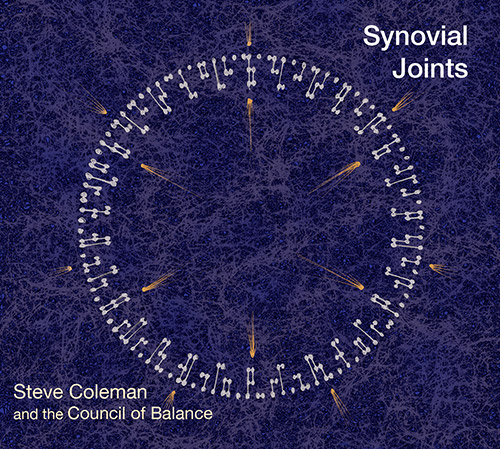
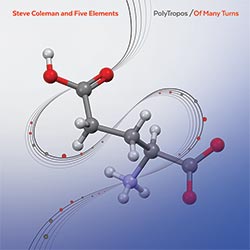


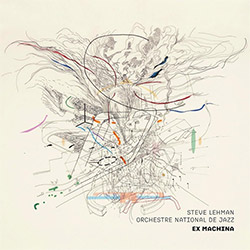

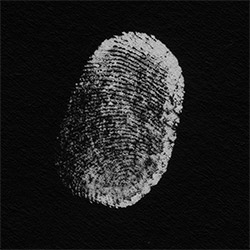
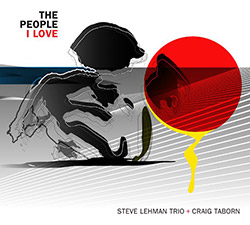
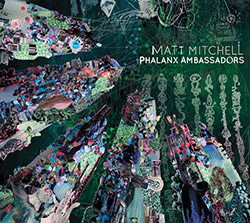



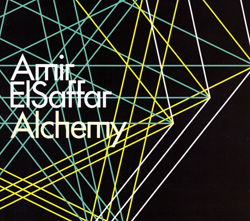


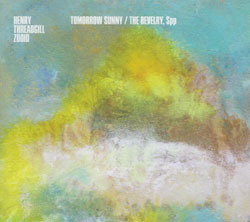
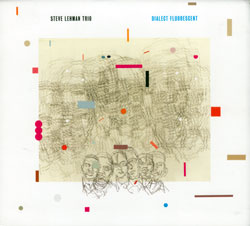
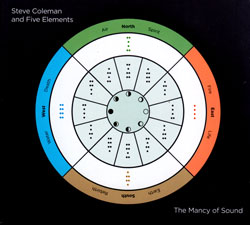
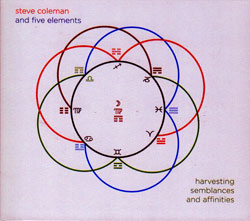

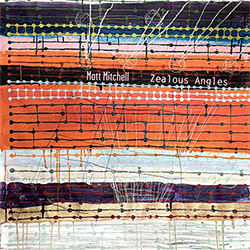

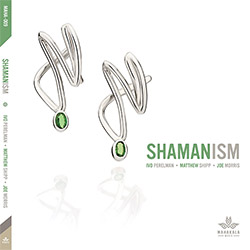
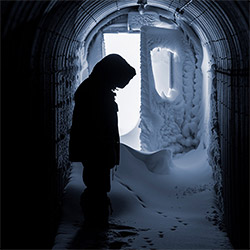

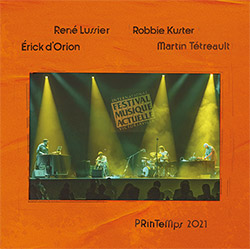











![Deupree, Jerome / Sylvie Courvoisier / Lester St. Louis / Joe Morris: Canyon [2 CDs]](https://www.teuthida.com/productImages/misc4/36404.jpg)


![Eternities: Rides Again [CASSETTE]](https://www.teuthida.com/productImages/misc4/36247.jpg)

![Lopez, Francisco: Untitled (2021-2022) [2 CDs]](https://www.teuthida.com/productImages/misc4/36438.jpg)




![Eventless Plot | Haarvol: The Subliminal Paths [CASSETTE + DOWNLOAD]](https://www.teuthida.com/productImages/misc4/36232.jpg)












![Eventless Plot | Francesco Covarino: Methexis [CASSETTE + DOWNLOAD]](https://www.teuthida.com/productImages/misc4/36231.jpg)



![Das B (Mazen Kerbaj / Mike Majkowski / Magda Mayas / Tony Buck): Love [VINYL]](https://www.teuthida.com/productImages/misc4/36329.jpg)



![Hemphill Stringtet, The: Plays the Music of Julius Hemphill [VINYL]](https://www.teuthida.com/productImages/misc4/36409.jpg)



![Halvorson, Mary Septet: Illusionary Sea [2 LPS]](https://www.teuthida.com/productImages/misc4/17952.jpg)






![Money : Money 2 [2 CDs]](https://www.teuthida.com/productImages/misc4/35894.jpg)




![Klinga, Erik: Elusive Shimmer [VINYL]](https://www.teuthida.com/productImages/misc4/36258.jpg)
![CHANGES TO blind (Phil Zampino): Volume 9 - I Wave on a Fine Vile Mist [CD + DOWNLOAD]](https://www.teuthida.com/productImages/misc4/36061.jpg)

![Wallmart / Rubbish: Asset Protection [split CD]](https://www.teuthida.com/productImages/misc4/35900.jpg)


![+Dog+: The Family Music Book Vol. 5 [2 CDs]](https://www.teuthida.com/productImages/misc4/35897.jpg)
![Kuvveti, Deli : Kuslar Soyledi [CASSETTE w/ DOWNLOAD]](https://www.teuthida.com/productImages/misc4/36107.jpg)

![Nakayama, Tetsuya: Edo Wan [CASSETTE w/ DOWNLOAD]](https://www.teuthida.com/productImages/misc4/36105.jpg)




![Yiyuan, Liang / Li Daiguo: Sonic Talismans [VINYL]](https://www.teuthida.com/productImages/misc4/35957.jpg)
![Brown, Dan / Dan Reynolds: Live At The Grange Hall [unauthorized][CASSETTE]](https://www.teuthida.com/productImages/misc4/36245.jpg)








![Palestine, Charlemagne / Seppe Gebruers: Beyondddddd The Notessssss [VINYL]](https://www.teuthida.com/productImages/misc4/36206.jpg)
![Palestine, Charlemagne / Seppe Gebruers: Beyondddddd The Notessssss [NEON GREEN VINYL]](https://www.teuthida.com/productImages/misc4/36207.jpg)

![Laubrock, Ingrid: Purposing The Air [2 CDs]](https://www.teuthida.com/productImages/misc4/35639.jpg)

![Yoko, Ono / The Great Learning Orchestra: Selected Recordings From Grapefruit [2 CDs]](https://www.teuthida.com/productImages/misc4/35841.jpg)









![Zorn, John / JACK Quartet: The Complete String Quartets [2 CDs]](https://www.teuthida.com/productImages/misc4/35609.jpg)

![Lonsdale, Eden: Dawnings [2 CDs]](https://www.teuthida.com/productImages/misc4/35480.jpg)



![Sorry For Laughing (G. Whitlow / M. Bates / Dave-Id / E. Ka-Spel): Rain Flowers [2 CDS]](https://www.teuthida.com/productImages/misc4/35985.jpg)

![Rolando, Tommaso / Andy Moor : Biscotti [CASSETTE w/ DOWNLOADS]](https://www.teuthida.com/productImages/misc4/36106.jpg)


![Electric Bird Noise / Derek Roddy: 8-10-22 [CD EP]](https://www.teuthida.com/productImages/misc4/35970.jpg)








![Elephant9 : Mythical River [VINYL]](https://www.teuthida.com/productImages/misc4/34624.jpg)



![Elephant9 with Terje Rypdal: Catching Fire [VINYL 2 LPs]](https://www.teuthida.com/productImages/misc4/35355.jpg)
![Deerlady (Obomsawin, Mali / Magdalena Abrego): Greatest Hits [VINYL]](https://www.teuthida.com/productImages/misc4/34876.jpg)







![Surplus 1980: Illusion of Consistency [CD]](https://www.teuthida.com/productImages/misc4/35069.jpg)
![Staiano, Moe: Away Towards the Light [VINYL + DOWNLOAD]](https://www.teuthida.com/productImages/misc4/35037.jpg)
![Coley, Byron: Dating Tips for Touring Bands [VINYL]](https://www.teuthida.com/productImages/misc4/17906.jpg)

![Lost Kisses: My Life is Sad & Funny [DVD]](https://www.teuthida.com/productImages/misc4/lostKissesDVD.jpg)